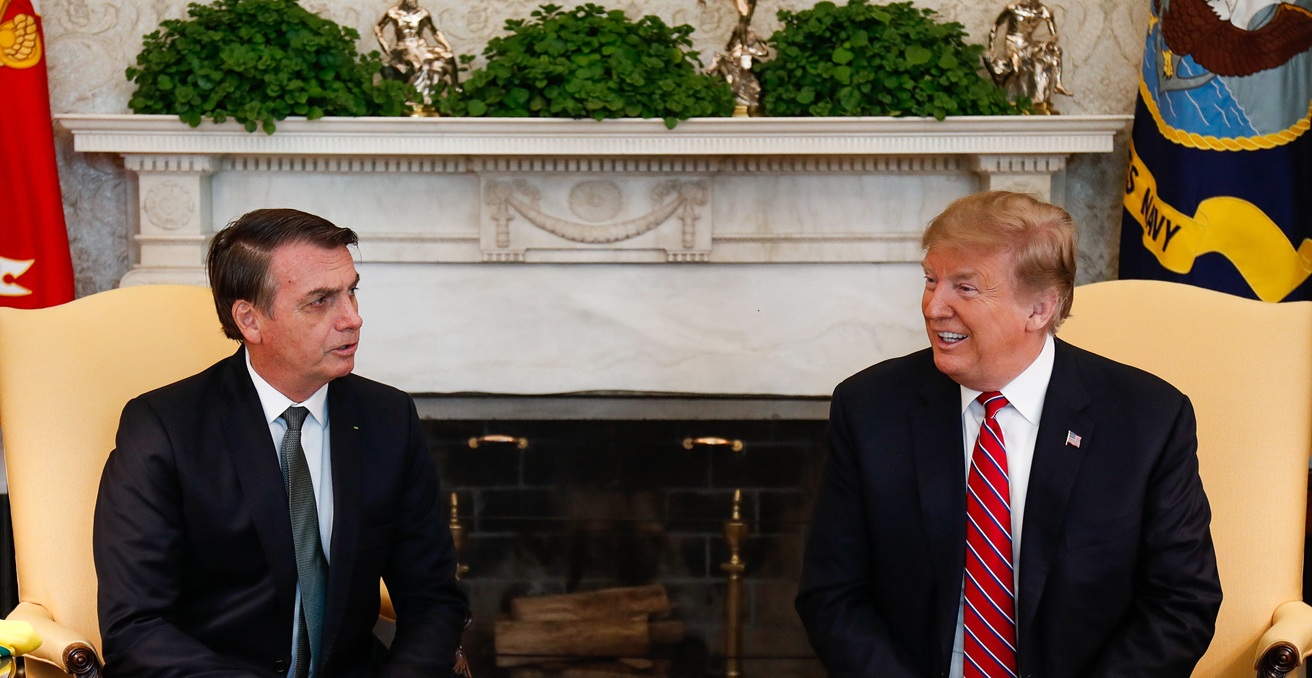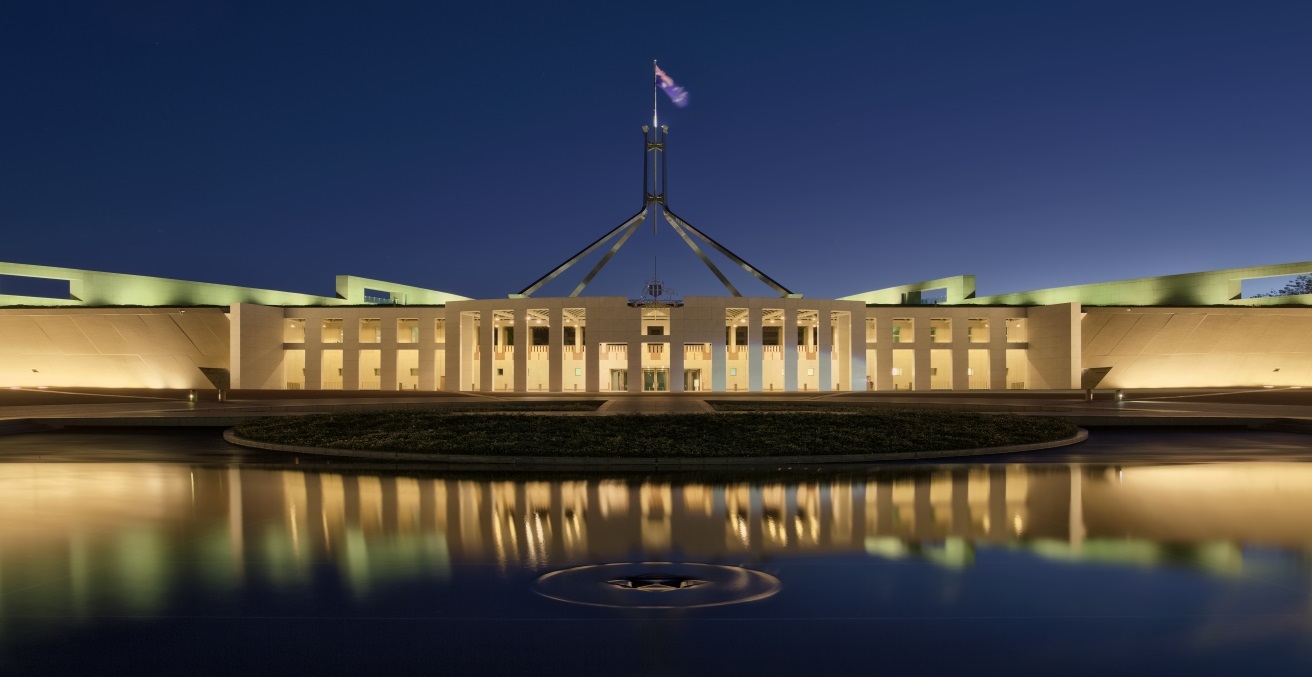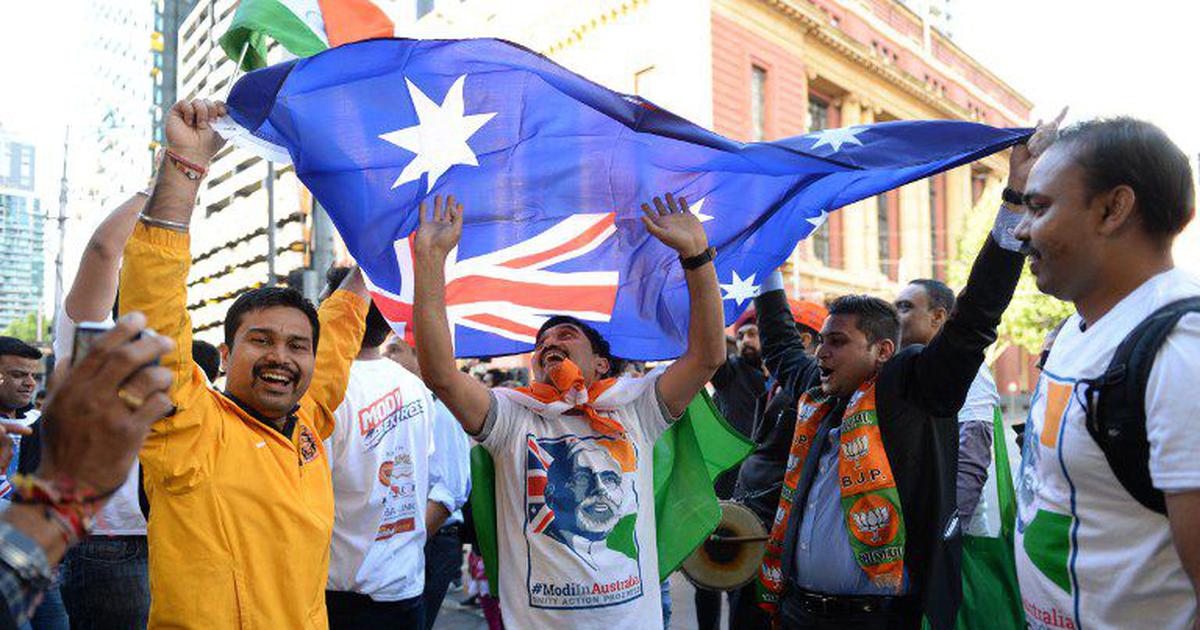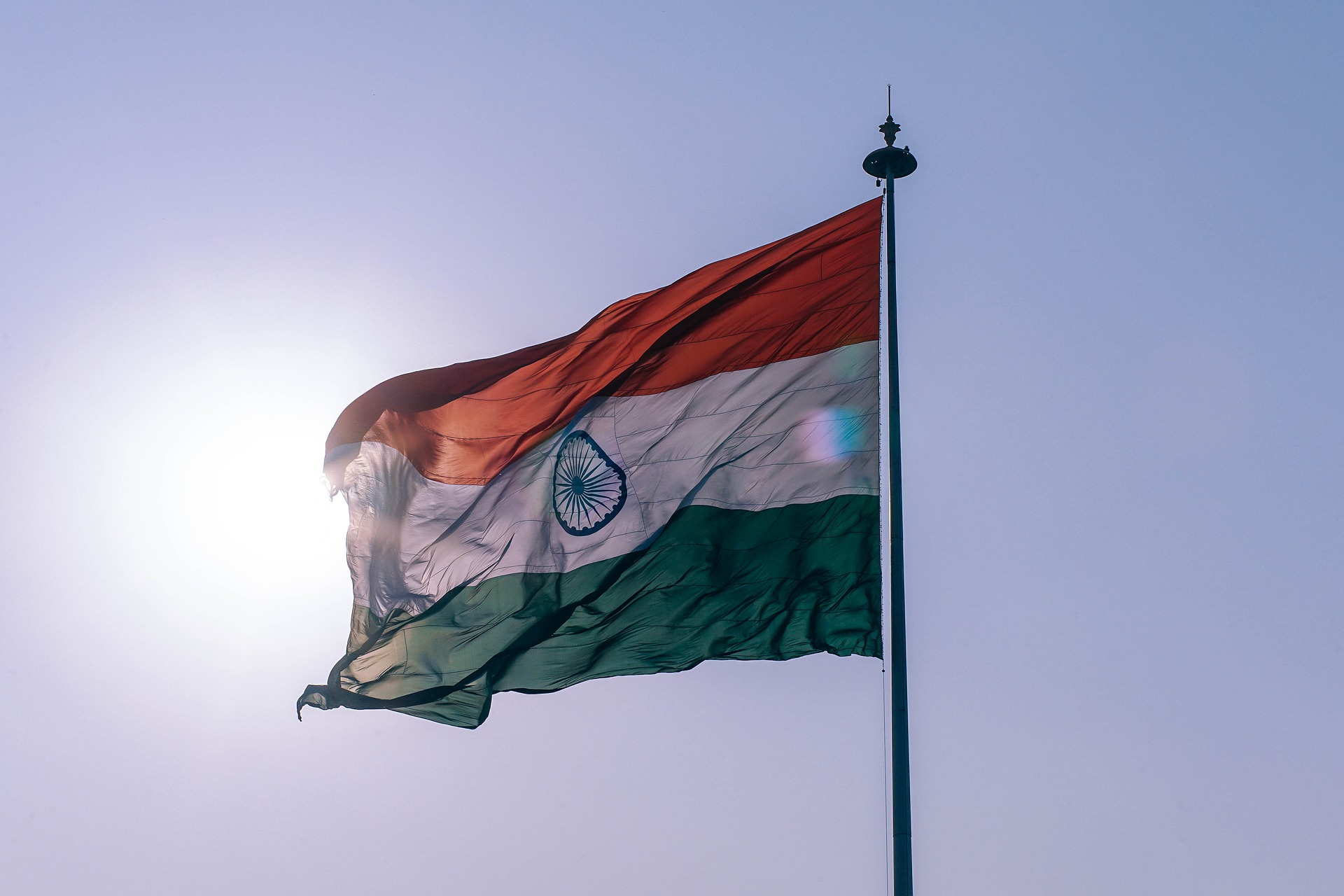Donald Trump’s imposition of steep tariffs and sanctions on Brazil marks a dramatic escalation in US interference in a key Latin American democracy. As Bolsonaro faces prosecution over the 2023 Brasília attacks, Trump’s alignment with the far-right ex-president threatens to strain US-Brazil relations and destabilise regional politics.
US President Donald Trump has published an open letter addressed to democratically elected centre-left Brazilian President Luiz Inácio Lula da Silva increasing tariffs on Brazilian goods up to 50 percent. Trump attributes this shift in US-Brazil relations to the treatment of Brazil’s Judiciary to former far-right President Jair Bolsonaro from the Liberal Party, also known as “the Trump of the Tropics.” Trump mentions in the letter that US tariffs will be imposed on Brazil due to violations against free and fair elections, and American citizens freedom of expression. Bolsonaro is currently being prosecuted by the Brazilian High Court for connections with the 8 January 2023 Brasília attacks. Similar to the 6th of January 2021 US Capitol riots, the attacks were instigated by claims of electoral fraud circulated on social media platforms. Trump’s concerns about Brazil’s interference in US citizens freedom of expression allude to Brazil’s High Court decision by Judge Alexandre de Moraes to temporarily suspend Elon Musk’s X and US accounts spreading misinformation about Brazil’s electoral system. Judge Moraes also presides over the High Court trial against Bolsonaro.
Although members of Brazil’s Congress, with bipartisan representation, reached out to the US administration to negotiate the tariffs, they were brushed off. Trump signed an executive order imposing 50 percent tariffs on Brazilian goods, although exempting few sectors like Embraer airplanes and orange juice. More worryingly, Trump has imposed Magnitsky sanctions against Judge Moraes, increasingly raising concerns regarding Trump’s political interference in Brazil’s sovereignty, and the efficacy of Trump’s personalistic style of diplomacy to US-Brazil relations, and broader regional implications. The heat is on, as we rapidly move towards turbulent times in regional and global politics.
Bolosonaro’s High Court Trial
Following the spreading of fake news about Brazil’s electoral system, and the subsequent Brasília attacks, Brazil’s Superior Electoral Tribunal removed Bolsonaro’s rights to run for the presidency until 2030. Past abuses have significantly influenced judicial rulings when it comes to subversive behaviours against Brazil’s constitutional order. Ironically, the US Judiciary, in comparison to Brazil, had limited legal avenues to hold Trump accountable for the crimes committed during the US Capitol riots.
Federal Police investigations of the Brasília attacks uncovered a criminal operation (Operação Contragolpe) with plans to disrupt the inauguration of President Lula in 2023. Documents presented by Brazil’s Federal Attorney General Paulo Gonet show how, since 2021, Bolsonaro had relentlessly committed to a campaign to disrupt Brazil’s democracy. Following his loss of the presidency in 2022, this disruption reached new heights. In one example, Bolsonarista members of Brazil’s military plotted a misinformation campaign aimed at destabilising Brazil’s electoral system and the presidential election results on social media platforms. This followed a similar “stop the steal” campaign strategy used by Trump in the US. In going further, the operation in Brazil included plans neutralise the nation’s High Court from prosecuting individuals charged with disseminating fake news and obstructing the transition of power to the new administration.
This cold war-like military plot, in the likes of a Hollywood spy-movie, included a plan to assassinate President-elect Lula, Vice-President Geraldo Alckmin, and Brazil’s High Court judge Alexandre de Moraes. Brazil’s Federal Police documentation shows how Jair Bolsonaro supported this operation and the plans to topple the regime and stage a new military coup.
Trump, by invoking Magnitsky sanctions against Judge Moraes—a legislation created during the Obama administration to address human rights violations—sends a clear message to Brazil and Lula: release Bolsonaro, now, with no reservations. Brazil’s leaders are concerned lest Trump decides to impose further sanctions.
The Trump-Bolsonaro bromance
Connections between Trump, former political strategist Steve Bannon, and the Bolsonaro family go a long way and predate Jair Bolsonaro’s first term in office. Bolsonaro snr and Eduardo developed a close relationship with Bannon and the Trump inner circle from 2018 onwards. In 2019, Eduardo Bolsonaro joined Bannon’s far-right global alliance to boost far-right nationalism globally. This organisation is one of the key flashpoints of the transnational articulation of the global far-right. Bannon “anointed” Eduardo Bolsonaro as the Latin American representative of this ultra-conservative nationalist movement, with the mission to consolidate a far-right strategy in the region.
Eduardo Bolsonaro is a key actor in the recent twist in US-Brazil relations. In April, Eduardo moved to the US and contacted members of the Trump administration to intervene in the trial against his father and grant him political asylum. However, in July, a Brazil’s High Court decision to monitor President Bolsonaro’s whereabouts, including a tracking system, closed a window of opportunity for him to leave the country, or request political asylum either in the US or a foreign Ambassy. Since then, Eduardo declared he will “give up” his term in Congress and ask for US political asylum for himself. He is now acting as an anti-Brazil activist in the US, and has organised several meetings in Washington, lobbying against the Brazilian government, including against a recent bi-partisan Congressional delegation to Washington. Eduardo deemed them anti-patriotic “golpistas.” After the imposition of the Magnitsky sanctions against Judge Moraes, he posted a YouTube video where he gets “emotional” about the imposition of sanctions against the High Court Judge, with undertones that appeal to the Bolsonarista evangelical base.
Trump’s increasingly personalistic and politicised foreign policy is a matter of great concern not only for Brazil, but for Latin America and other democratic countries globally. Trump’s transactional approach to foreign policy, and disregard for historical US friendships, will continue to create worldwide uncertainty, and distrust in the US. The political interference in Brazil’s judiciary are likely to increase regional tensions, weakening US-Brazil and US-Latin America relations. Perhaps more problematic, however, is the dangerous precedent set by Trump of US sanctions against other democracies. In the words of Bannon: “It’s Maga, baby. It’s a Brave New World.”
Dr. Flavia Bellieni Zimmermann is a Lecturer in Public Policy in the school of Social and Political Sciences at the University of Melbourne and an international political analyst. She is also an Adjunct Research Fellow in the School of Social Sciences at the University of Western Australia.
This article is published under a Creative Commons Licence and may be republished with attribution.





